America Is Becoming Dallas
Part Two: Sprawling to Freedom
Read Part One of this story here.
Will Rogers once said that “Fort Worth is where the West begins and Dallas is where the East peters out.” Today, that quote wouldn’t make much sense. The distinction between the two places has been erased by the yawning expansion of the Dallas metroplex. You can use different names if it makes you feel better, but zoom out on a map of that ample concrete blot on Northeast Texas and you will see the truth. From Forth Worth to Garland, from Denton to Waxahachie, from Arlington to Mckinney, it’s all Dallas. If your town is not part of Dallas yet, just wait.
Three of the five fastest growing cities in America are Dallas exurbs. The fastest growing city of all, with more than 30% population growth last year, was Princeton, Texas, an hour’s drive north of downtown Dallas. If you’re curious, you can hop right on the Sam Rayburn Tollway and see the future.
As you drive, for miles and miles, you will see road crews of hardworking men in bright yellow vests driving backhoes. They are all building new roads, bigger roads, to take more people out to Princeton. And, one day, beyond! All of these hardworking men are earning the money necessary for them—or, perhaps, their kids—to buy a home just like the ones that you can see other crews of men building in the places that the roads are going to. This square deal can keep reproducing itself, as far as Texans are concerned, forever.
As you sit in your car on all of those highways, you might wonder: Why not build the actual places where the roads are? Then you wouldn’t need the roads, since you would already be in the place. Well, if they did that, the whole system would collapse. Don’t think like that.
Go through downtown Princeton, which isn’t much, past the gas stations, past the twin US and Texas flags of truly staggering size next to a car dealership, out to the edge of the youngest neighborhoods in America. The farthest possible newly built cul-de-sac. It’s on Colgate Circle in a development called Monticello Park. Like the other Monticello, it is made of bricks. Unlike the other Monticello, it is a maze of quasi-identical homes in various shades of dirt, with four-bedrooms available under $400k. The neighborhood is half-occupied, even as it is still under construction. One man, the rebel of the area, pumps up an inflatable Grinch on his front lawn. The scrawny, freshly planted trees have years to go before they’ll do much against the Texas sun. The pioneering homeowners of Monticello Park will have to tough it out for a while.
Park at the end of Colgate Circle, surrounded on three sides by just-completed homes that have just been passed off to local real estate agents, and you are at the edge of the new American frontier. This is not the frontier where humans tamed raw nature, nor the frontier where white people pushed out the original inhabitants; it is the modern frontier, where America chews up whatever is there and excretes in its place a layer of manufactured Americana that will solidify into something identifiably American and indistinguishable from anywhere else in America.
It is hard to put your finger on why Princeton, Texas would be the top, highest, number one hottest place anywhere in this gargantuan land. That is because the reason has nothing to do with any qualities of Princeton, Texas, other than its particular location on a map. It is merely space—land to build more big roads and more big housing developments and more big gas stations and car dealerships with big flags. Nothing distinguishes Princeton from Anna or Celina or Fate or Melissa or any of the other rapidly filling small towns surrounding the Dallas metroplex like ejecta from a volcano. They are, all of them, empty-ish spaces to be converted into the latest ring on the 70-mile-wide Dallas tree. To drive back into the city, through McKinney and Plano and Allen and Richardson, is merely to bore back in time through the earlier outer-ring exurbs, now fully subsumed into a medium-density paved blob that is, like a mature kudzu plant, too pervasive to rip out, no matter how obvious it is that doing so would be an improvement.
Here, on full display, are thousands of square miles of proof that you cannot build a real city out of a box of preselected options. The commerce in all of these towns is a random jumble of chain stores, as if the city manager flung handfuls of corporate logos out of his car window while driving past strip malls at top speed. It is business district by algorithm: Every 3.8 square mile area can fit one PetSmart and one Omaha Steaks and one LA Fitness and one Tom Thumb grocery and pharmacy. And then repeat! And repeat! And repeat, to the horizon!
The neighborhoods, everywhere, are planned developments, each a segmented square off a main road bordered by a long neck-high brick wall. The homes therein are defined by front-facing garages attached to triangles. For higher price points, these homes can have their shoulders broadened, adding arched windows and extra stories, without ever losing their inherent featureless conformity. They bestow themselves with preposterously haughty labels. In Plano, Texas, you can live in the Willow Bend Polo Estates and go shopping at Polo Towne Crossing. Allen, Texas has streets named Rolex, Duchess, and Rockefeller. All of these opulent names are attached to the same homes with the same floorplans down the street from the same Chipotles. America’s most minor royalty, snug behind their brick walls. The Lords of Walmart. The Dukes of Target. The heirs to the dream of Dallas, full of righteous pride, alive somewhere that aspires to be everywhere.
**********************
The President George Bush Turnpike is, like its namesake, oil-soaked and ill-conceived, a defining member of the terrifying “forest of highways” look that characterizes urban planning gone awry. Exit it and plunge into the city, however, and you can find the George W. Bush Presidential Library at Southern Methodist University in the leafy environs of University Park. It is one of Dallas’s most sought-after neighborhoods—which is to say, the neighborhood that looks the least like Dallas.
As the most powerful Texas political family in modern history, the shadow of the Bushes still hangs over America. The Trump era can be seen as a rejection of its performance but a continuation, in large part, of its substance. You never expect a presidential library to be honest, exactly, but it is not unreasonable to expect them to wrestle with the knotty questions of a president’s legacy in a forthright way. That is not the case for Dubya’s library. There was a large group of elementary school students ahead of me on the tour, and they indeed seemed like the target audience.
Bush is presented, above all, as a guy who loved sports. There is a comically large exhibit dedicated to the time he threw out the first pitch at Yankee Stadium after 9/11. (He threw a perfect strike, the exhibit notes.) There are many glass cases with baseball memorabilia, including one wall-sized case holding all of the signed baseballs Bush accumulated as president. “It’s no secret my husband loves baseball,” explained a mounted quote from Laura Bush. Well, sure.
That’s not all that the Bushes were about, of course. There was also interior design. The museum includes a life-sized replica of Bush’s Oval Office, where children can sit, close their eyes, and imagine what it is like to be an oil lobbyist. A huge “Living in the White House” area includes another powerful Laura Bush quote: “It’s such a privilege to live here and be the steward for all this–the fabulous things that are in this house: the beautiful art, the historical furniture, the beautiful building itself.” It is actually valuable as an excellent demonstration of the way that Southern manners have evolved to maintain decorum while papering over atrocities.
The other stuff is all there, with a glossy sheen: The War on Terror reimagined as a movie-style situation room, where you can compare your own policy instincts to Bush’s in the Decision Points Theater; side-by-side displays of Hurricane Katrina and the Financial Crisis, each unfortunate natural disasters that you certainly cannot blame on George; and a teeth-grinding video game-like explainer of the War in Iraq.
“At the start of the Bush Administration, Saddam Hussein was a threat to international peace,” it says. But by the end of the Bush Administration, “The back of the insurgency was broken,” and “Iraq was able to govern, defend, and sustain itself, but continued to face intermittent violence.”
There were no photos of dead Iraqis, but there were several bobblehead dolls of various Bush Administration figures available in the gift shop. The most provocative item in the entire museum was a 1999 campaign bumper sticker that read “Women For Bush.” I spent a long time contemplating whether the Republicans got the joke or not. I concluded that they did, but suppressed it with all of their might, shoving it down into the dark locker within where they keep anything that might distract them from their enjoyment of the baseball game.
****************
Dallas is the heart of Texas, and therefore the heart of funding for the Texas Republican Party, notwithstanding the determination of most politicians here to present themselves as simple cowboys who just wandered in from a wholesome lynching. Despite the great diversity of the state itself, the Texas Republican Party has managed to, first, seize total power in state government, and second, to radicalize its own members, all engaged in a constant race to the right with one another. In this, Texas is a concentrated microcosm of America as a whole, a place to inure yourself to the destabilizing feeling of a modern setting blanketed by medieval politics.
To get a taste of this, I went to a forum for candidates running for Texas Attorney General. The event was held in a theater at Dallas’s Angelika Film Center, creating the terrifying risk that a civilian might unwittingly stumble into it on their way to a “Nuremberg” screening.
If any radical Muslim jihadists were planning to go to the movies that night, boy, they picked the wrong place. As an out-of-towner not deeply versed in all of the sociopolitical challenges in Texas, I was surprised to learn the extent to which the state is threatened by Sharia law. Apparently it’s the biggest problem there is. Thankfully, all of the candidates for Attorney General were ready, if elected, to tackle it as their highest priority.
“I will secure our Judeo-Christian culture from the advance of Sharia law,” said Congressman Chip Roy, via video from DC. “It’s an organized attack.”
“Before I even ran for this office, I began fighting against Sharia law and Islamification,” said Mayes Middleton, a clean-cut oil company president and state representative (synonyms in Texas).
“Islam—particularly its militant forms—are utterly incompatible with Western and American civilization,” said Aaron Reitz, a bald young former Trump administration attorney who has studied at the Stephen Miller school of rhetoric. “Christians and Jews may disagree on certain theological points, but we are deep allies in fighting against civilizational threats, the common enemy we have in Islam.”
“Back in 2017, I noticed the Sharia problem that was starting to percolate down in Fort Bend County,” said state senator Joan Huffman, who was clearly the most traditional Republican of the group, struggling to keep up with the MAGA zealots. She got a bill passed that said “you cannot follow Sharia law in any courts of Texas,” which was surely a relief to the beleaguered citizens of Fort Bend County.
All of them hastened to applaud Texas Governor Greg Abbott’s announcement, made that same day, that he would be designating the thoroughly mainstream Council on American Islamic Relations as a terrorist organization. Each also vowed to stop a proposed Muslim housing development called EPIC City, which has thrown the welcoming Christians of Plano into an uproar.
“We’re not allowing our enemies to buy Texas out from underneath us any more,” Middleton vowed.
“What I want to do as Attorney General is to treat the Islamists like the Feds treated the Mafia in the 70s and 80s,” Reitz said.
Loving thy neighbor was not discussed at the Texas Attorney General candidates forum. But everyone running also agreed that the Ten Commandments need to be posted in schools, that everyone needs to use the right damn restroom, that property taxes should be abolished, that judges are too lenient, that woke corporations need to be reined in, that shameful lawfare is being wielded against President Trump and January Sixers, that Soros-funded district attorneys will never prosecute all of the voter fraud that we all know is present in any election that Republicans lose, such as the 2020 presidential election, which was “stolen” and a “sham election,” probably due to the globalist George Soros, who, rest assured, will be investigated as soon as a patriot takes office.
One of these people will soon be the top law enforcement official in a state of 31 million people.
I walked all over Dallas and never saw any Sharia law. Maybe I missed it. Or maybe Texas is America’s most advanced example of what happens when you mix our famous racism and self-mythologizing with a fatal dose of internet poisoning and unrestrained capitalism. We sit in our gleaming new homes, fingering our weapons, aiming at enemies that exist in our minds.
“Abundance” is not a wonky set of policy prescriptions aimed at liberals on the coasts. The real version of American abundance—the version that long ago moved from theory into practice—can be found in Dallas, Texas. The common thread that runs through all of the elements of this particular Dallas lifestyle is the implicit belief that the world is here for us, and no one else. The church here says that we will be saved, as our wicked enemies burn in hell. The land here is treated as an infinite resource, wasted on broad highways and spacious gas stations and two-car garages, everything farther than it needs to be from everything else, because god bestowed this bounty upon us, and we deserve to use it as we see fit. The politics here coddle the ill-concealed beliefs of a certain set of people that theirs is the superior culture, and nurture their wheedling fears that a darker and different person will creep in and steal it all away in the middle of the night.
The power of this culture is demonstrated by its growth. It has arranged our landscape, and our economy, and, now, our political system ever more in its own image. It tells us that we can take everything, use everything, and those that we took it from never deserved it in the first place. If they did, they would be us.
America, we deserve this. Dallas is what we deserve. And we will get it. Dallas is coming. Faster than any of us can run away.
Also
This is a two-part story. You can read Part One, “The Lord of Plano,” right here. How Things Work is an independent publication, funded not by oil money nor by corporate donors, but rather by readers just like you. We have no paywall here. If you enjoy reading this site and would like to help us keep publishing, consider becoming a paid subscriber right now, for an affordable price. Thank you all for being here.


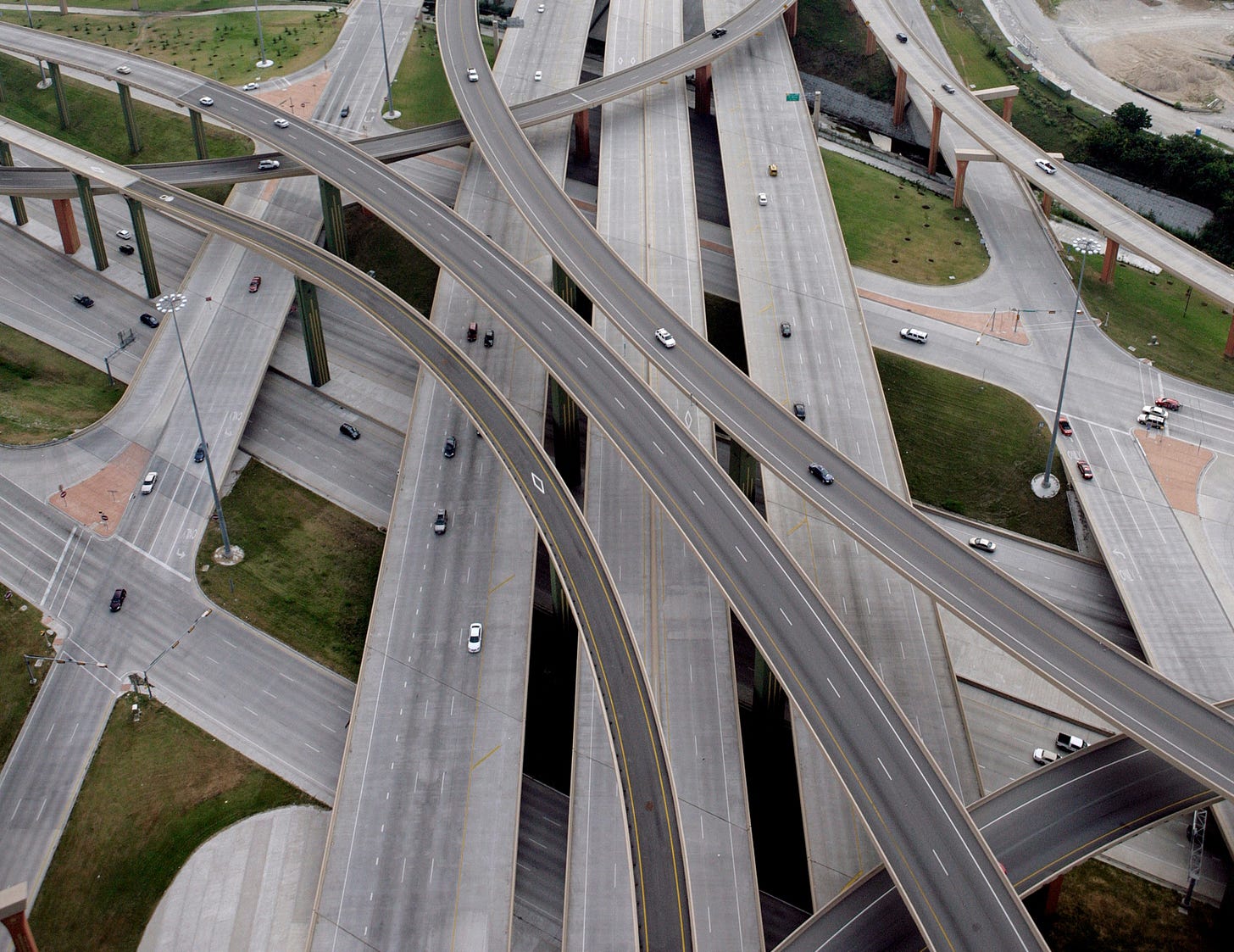
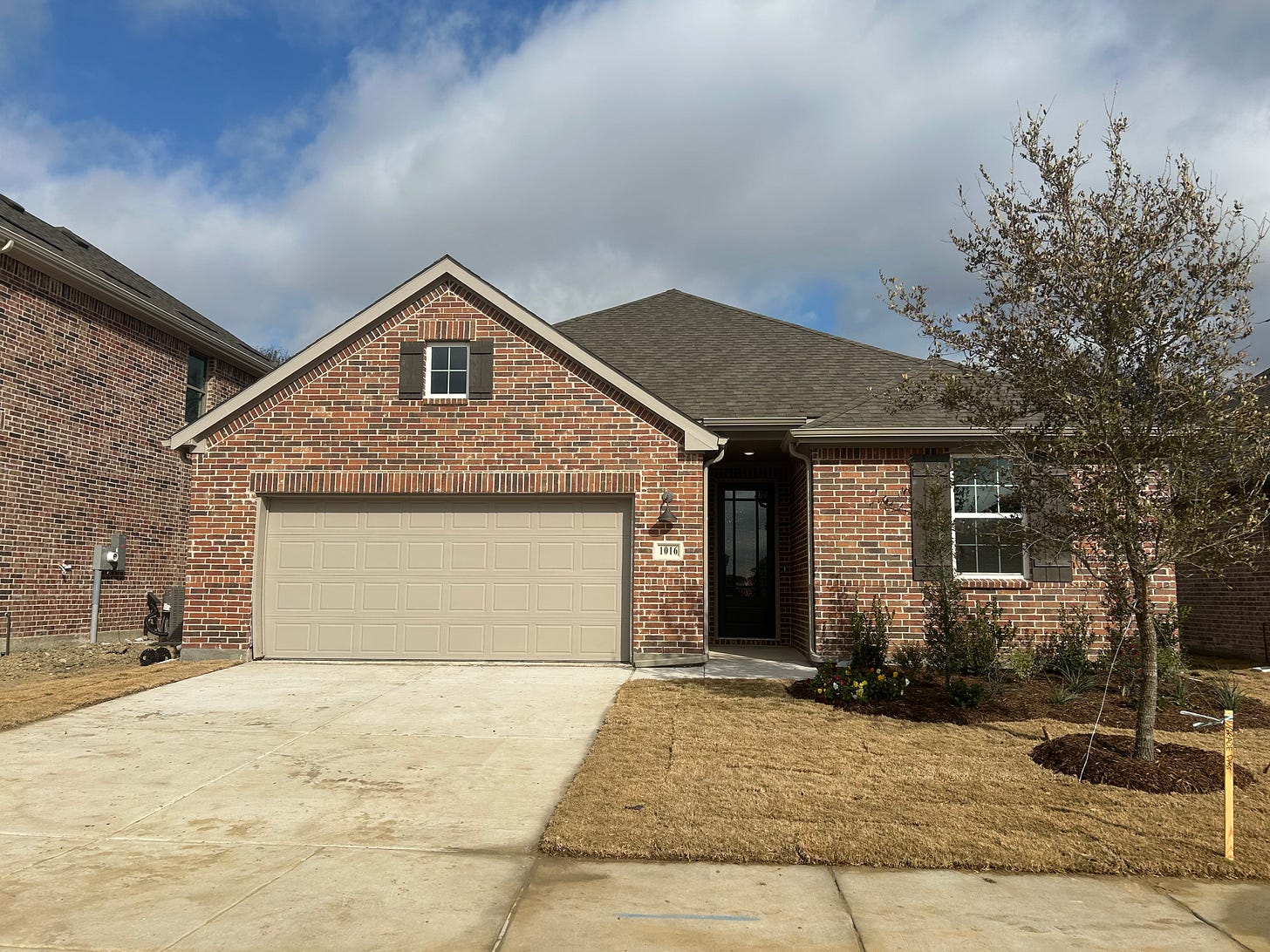
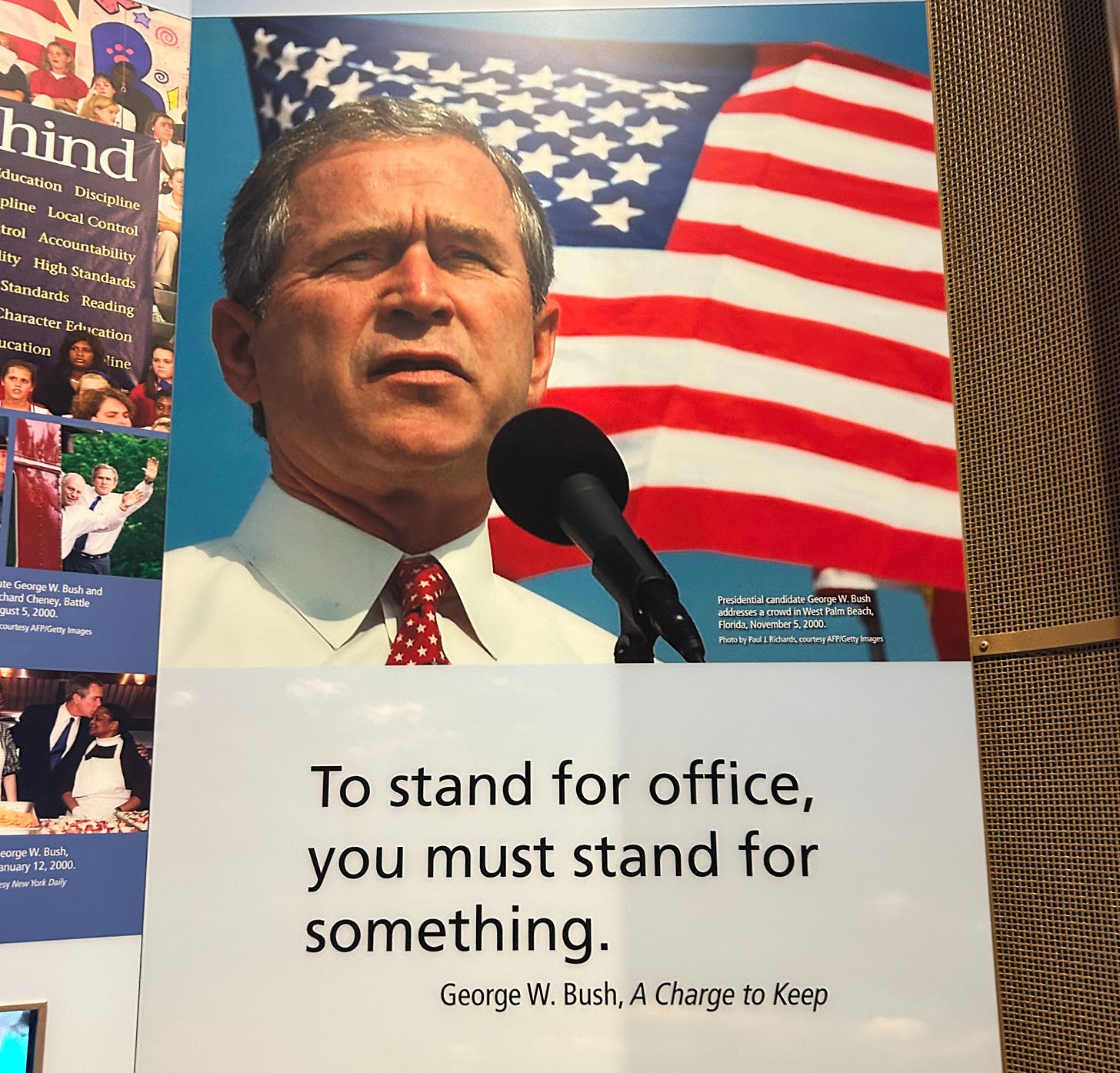
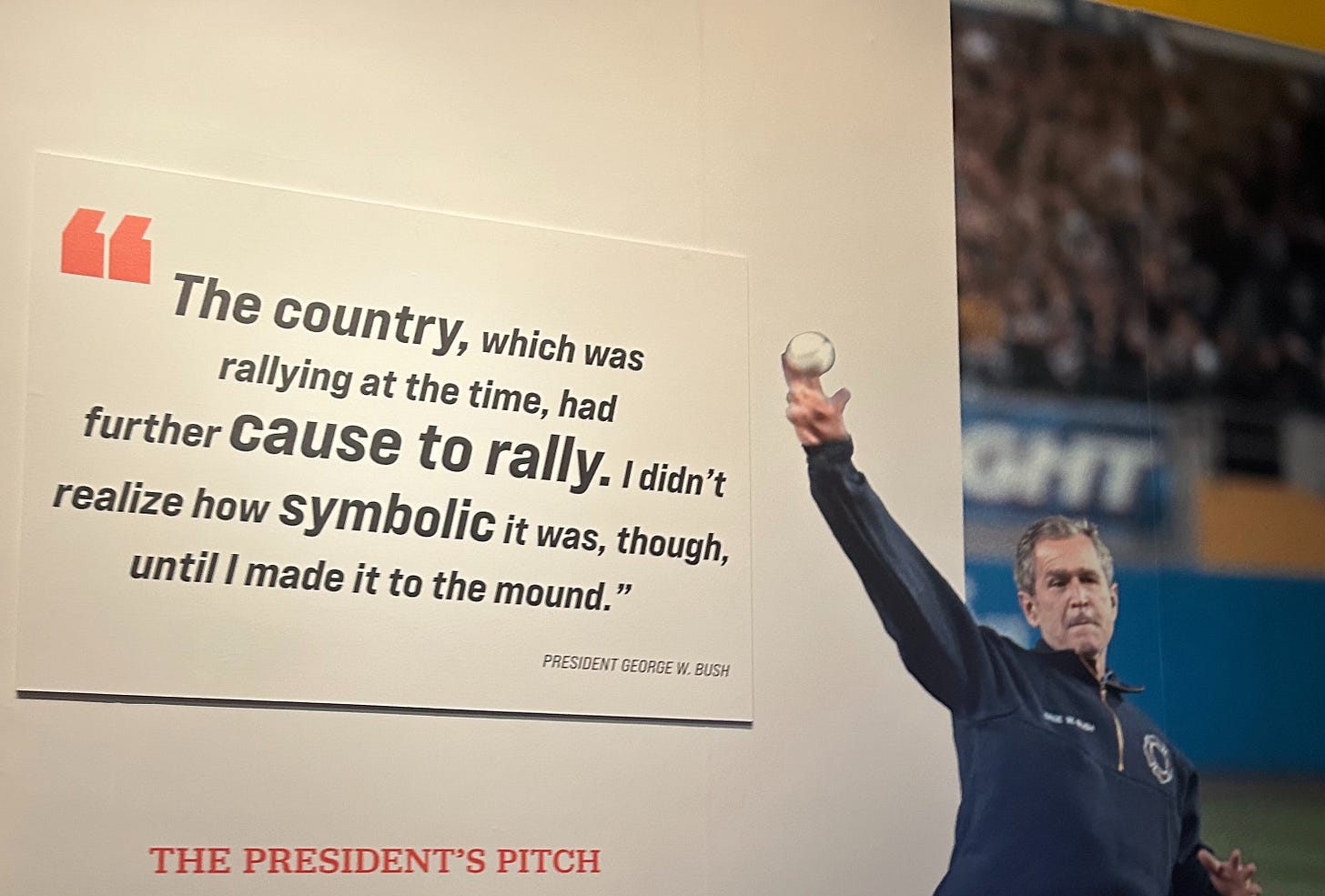
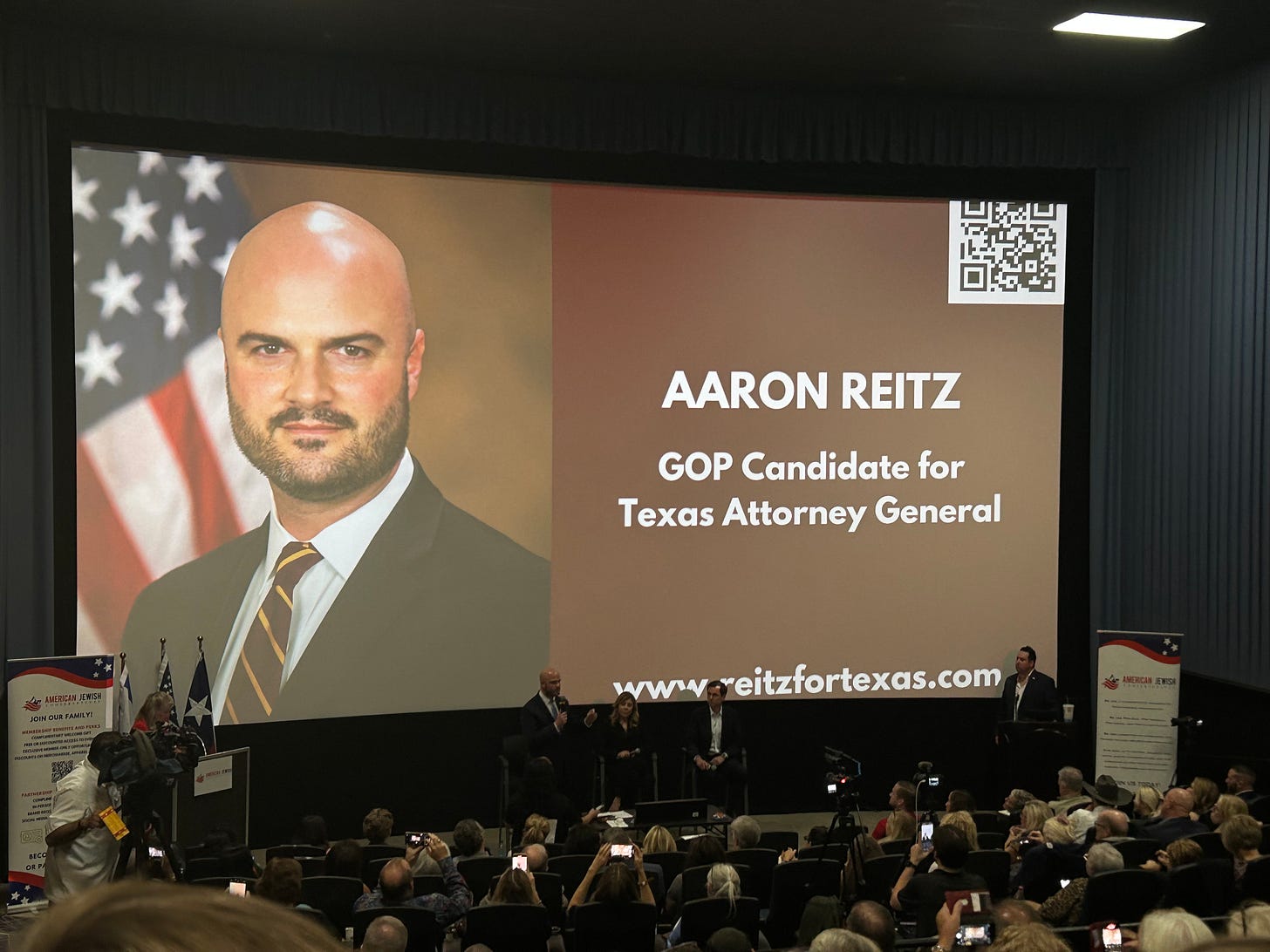
Just to put this comment into perspective: I'm a native Dallasite but have lived in Austin since I was 13, in addition to NYC & London. I'm still up there at least once a month, however.
While I'm as alarmed by the rise of megachurches as any other given American progressive, I'd nonetheless argue that looking at Dallas solely through the perspective of its churches & suburbs is myopic, despite largely agreeing with Hamilton's points. One aspect of Dallas life you might not know absent decades of experience: the extent to which white flight occurred there, but also how much it's since been *reversed*.
I know this is true in NYC as well, but the default option for young couples is increasingly *not* a house in the 'burbs with 2.5 kids. It's even gotten its own batch of realtor-invented area names: if SoHo begat NoHo, Dallas's Preston Hollow area – its fanciest within the city limits – begat "Midway Hollow." (My own childhood neighborhood, one that's apparently now a huge draw for mid-century architecture enthusiasts.)
Further still, what *really* scares the living shit out of my state's unfortunate bigots – resulting in borderline-farce notions about "Sharia law" and the like – is reality: Texas in 2025 is only 40% white. Each of its major cities, including Dallas, is heavily Democratic, and yet people still routinely think Austin's the "lone blueberry in the bowl of tomato soup," to paraphrase Rick "Oops" Perry. The suburbs are overwhelmingly white, but Dallas proper is barely 25% white.
When my family left Dallas, Plano was still almost entirely white. Today it's not even *majority* white, and a quarter of its population is Asian.
Prestonwood Baptist Church may be the future MAGA wants for America, but that doesn't mean the inverse is necessarily true – even in Dallas. In the reality-based world, white Texans are a rapidly dwindling minority, and Republicans have successfully pissed off our largest ethnic group by far: Hispanics. Heckuva job!
Amazing writing!